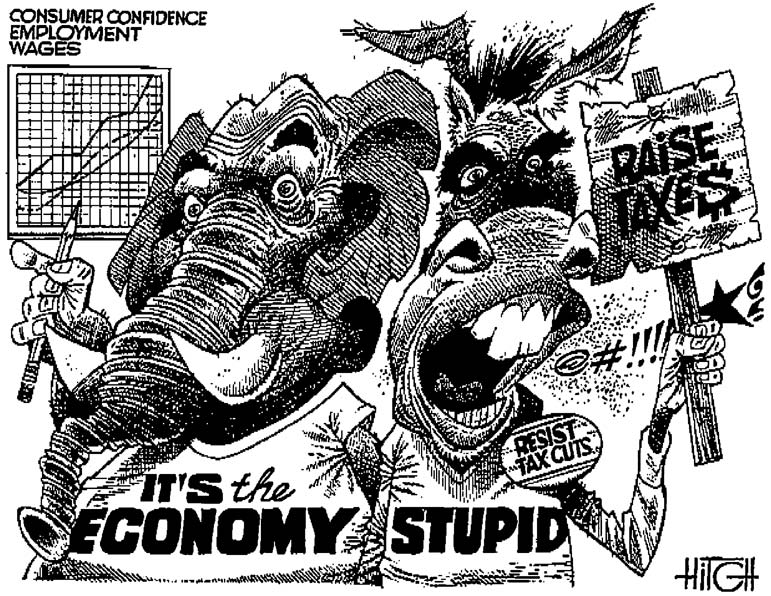
One of the more exhausting rituals of presidential campaign season is the effort to make every new proposal "add up." Sure, it's better that politicians try to come up with a plan to pay for their wish lists. The problem is that the explanations are often a disguise that make the impossible seem possible, even practical. Fake budgets are the tribute that pandering pays to pragmatism.
You could confiscate the wealth of every billionaire and centimillionaire in the country and it wouldn't come close to paying for Medicare for All or the Green New Deal.
But let's pretend that the fantastical (albeit unconstitutional) wealth tax
Would that be good for the country?
Warren sees the rich as a natural resource that can be mined for its wealth indefinitely. Well, we have a lot of examples of countries that depend on natural resources to pay for everything.
It works like this: When the government doesn't need the tax dollars of a middle class, the middle class has less political power. Virtually everywhere democracy has taken root, starting with
The curse has an economic component as well. The countries that rely on natural resources tend to be poorer because they are less economically dynamic. Think resource-poor
But the more important part is the democratic disincentive. Think of the old golden rule: Whoever has the gold makes the rules. (This insight apparently comes from noted philosopher
Today, the top 1 percent make roughly 20 percent of the money in this country and pay almost 40 percent of federal taxes. Meanwhile, 60 percent of
Is it any wonder that our political system is so heavily influenced by the top 1 percent? Is it any wonder that the top 1 percent feel so incentivized to get involved in politics? The more skin you have in the game, the more you care about the game.
The left used to understand this. For generations they opposed means-testing
Americans are practical. When told that the rich can pay for cool stuff, they say "go for it." When asked if they want the cool stuff so badly that they'd be willing to pay more themselves, they're much stingier.
The danger of promising that the rich can pay for everything is multifaceted. First, it's not true. Second, you don't have to be a student of public choice theory to understand that the more
Liberty-loving columnists delivered to your inbox. FOR FREE. Sign up for the daily JWR update. Just click here.
(COMMENT, BELOW)
Jonah Goldberg is a fellow at the American Enterprise Institute and editor-at-large of National Review Online.


 Contact The Editor
Contact The Editor
 Articles By This Author
Articles By This Author